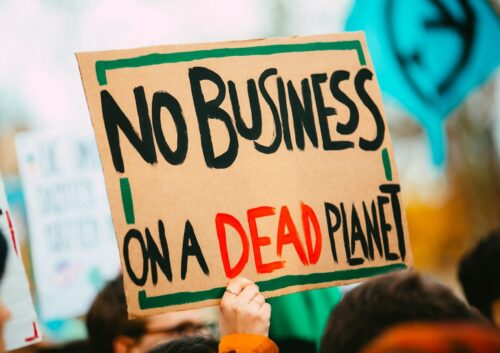
The BBC is preparing to launch an investigation to assess bias in its climate change coverage, amid a growing crisis at the corporation. [some emphasis, links added]
The broadcaster has decided to review its climate and energy policy reporting after a string of controversies. It has been forced to make a series of corrections, with some programs being removed altogether. …snip…
Boris Johnson has led calls for Tim Davie, the BBC director-general, to “explain or resign” over the bias scandal engulfing the broadcaster, while MPs said it was time for Mr Davie to “come out of hiding”.
Now the broadcaster will face fresh scrutiny on its climate coverage, with its Editorial Guidelines and Standards Committee deciding to carry out a “thematic review” of its coverage of “energy policy in the UK and climate change”.
This would make it the latest in a series of reviews on impartiality carried out by the BBC in recent years.
They are part of its 10-point impartiality plan, which was introduced in 2021, following an inquiry into the scandal surrounding the 1995 Panorama interview with Diana, Princess of Wales, involving Martin Bashir.
Last night, Richard Tice, deputy leader of Reform UK, said the review was “not before time”.
“The BBC must investigate its appalling climate change bias. However, given recent BBC bias scandals, I have no confidence that it will present the true findings. The only solution is to have a totally independent review of the BBC’s climate scaremongering,” he said.
Claire Coutinho, shadow energy secretary, said:
“The consensus on how to address climate change is breaking. If we stick to the current path, we will be poorer and weaker. It’s vital the BBC is able to report news about climate change impartially and make sure all views are represented.”
Earlier this year, the BBC quietly edited an episode of Question Time after allegedly making a false claim about net zero. The corporation has defended the move, saying it is “normal practice to edit the programme before broadcast for audience clarity.”
Last year, a complaint was upheld when a BBC News article presented as fact the claim that “human-induced climate change made recent extreme heat in the US [Southwest], Mexico, and Central America around 35 times more likely.”
In May 2022, Justin Rowlatt, the BBC’s climate editor, was found to have made misleading claims about extreme weather in a Panorama documentary.
In October 2020, Ofcom upheld a complaint by the National Farmers’ Union regarding the documentary “Meat: A Threat to Our Planet?“, and the documentary was later removed from BBC iPlayer.
The BBC has also been criticized by those on the Left who argue that the corporation has allowed too many climate change skeptics on air and has not challenged them sufficiently on their views.
Read full post at The Telegraph


















